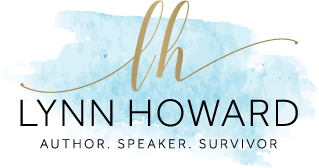My Journey with Abuse, Depression, and Mental Health
For me, crises can feel familiar, almost comfortable. Old survival mechanisms kick in and my past feels closer to the present than ever. In this time of global instability, where so many are struggling to keep a handle on mental and emotional health, I feel moved to share more of my personal story, with the hope that it might help someone. My journey has been a rocky one. The me you see and know today - a successful business coach and entrepreneur, digital nomad, and former COO of a global franchise structure company - is a woman that I could never have imagined years ago. This is her story.
I have persevered.
I have survived.
I have fought to stay here.
I have had really amazing highs.
I have had crippling lows.
I am a lucky one.
CONTENT WARNING
This blog post contains references to abuse, depression, and suicide.
Uncertainty and instability were two things that I knew well as a kid growing up in Illinois. As I’ve mentioned briefly before in other blog posts, my childhood was riddled with physical and emotional abuse. I was adopted at age 5, by a man who came into my life when I was about 18 months old. My biological mother and him married and had two other children together. My mom came in and out of our lives starting when I was about 9 and then did not become more involved until after I was about 15, which is a story in itself. We moved about every 2 years on average, often changing schools. In 8th grade, I was placed in Mooseheart School.
The Cycle of Abuse
I have a distinct memory as a young child of being locked in my room for days, as punishment for eating the strawberries out of the fridge without permission. I was about 5 or 6 years old. When I was finally able to come out of the room, there was a padlock on the fridge. I have a memory of the police showing up at our door, saying that they got a call about children screaming from a neighbor. We lived in the middle of the country, at the end of a long driveway, with our closest neighbor at least a mile away. I am haunted by a memory of my Dad, piss drunk and passed out in the shower, unable to get up. I had to take care of him at age 8.
I intuitively knew, at a very young age, that this was not “healthy” or normal. As an elementary school kid, I researched and wrote a paper on breaking the cycle of abuse. I knew that the adults in my life were behaving this way not because they were bad people, but because they were also damaged and hurting. They too had been abused, and were simply doing the best that they could with the limited and broken tools they possessed.
“You can’t give away what you don’t have. If you don’t have love for yourself, then you can’t be loving to others.”
- Wayne W. Dyer
Although I researched and understood this concept of the cycle of abuse as a child, it took me many more years to break out of it myself. After being sent to Mooseheart School and spending some time in college, I entered into another abusive relationship with my children’s father. I was just 21 when I had my first child with him. My second came less than a year later. I stayed around, on and off for about 2 years total, believing I could “fix” him or change him. I almost paid the ultimate price. He kidnapped our daughter at one point and he almost killed me several times. He was and still is not a good man. The truth was, I didn’t value myself. I didn’t understand what love was. I was depressed and didn't believe I deserved better.
I did get out, not easily, but I did! My children didn’t have a choice, and so I needed to make a better choice for them. This has been a HUGE driver in my live, making better choices for them, even in my lowest of days.
If you think you or someone you love might be suffering from domestic abuse, visit The National Domestic Abuse Hotline to learn more and get help, or call 1-800-799-7233.
Depression
Not many years ago once I realized that I suffered from depression, I debated whether it was “nature” or “nurture”.
Was it childhood abuse? Or my family tree? Generations of my maternal family have been affected by mental illness. Several of my great aunts and uncles were permanently institutionalized in a mental hospital. When my mom was around 10 years old, her mother, my maternal grandmother, killed herself.
“Remember, suicide is a permanent solution to a temporary problem.”
- Robin Williams
I, too, nearly followed the path of my grandmother in a couple very dark moments of my life. Once I sat in a hotel room, gun in hand, writing a note to my family. Something happened that day and I am still here. Call it grace, divine intervention, dumb luck... This moment reinforced a fire in me and a drive to a bigger purpose. I’m grateful that I didn’t miss out on the rest of this beautiful life.
Fast forward many many years, when I was at rock bottom again, going through a divorce, self evaluating where things went wrong, I started to have a lot of clarity around this subject and was then open to learn why this was happening and have an understanding around the depression and have a choice in the matter.
At this moment during the divorce, I was lucky that my soon to be ex husband and I wanted to remain friends and really work through this together, take responsibility for our parts. He gave me the space to analyze our journey and have open conversations to help heal the wounds. I realized that many years prior to the divorce, I was unhappy and he would tell me that he would do anything to help me, but I could not give him an answer. I realized that he could not make me happy, it had to come from within, first.
This realization sparked a movement inside of me to dig and dig and dig, to heal myself, to believe in myself, and to learn to love myself in a healthy way. After this, my self awareness deepened to a new level. I attracted people along my journey who would help me dissect this depression on a deep, karmic level. By the way, this digging was not a new concept. In my earlier blog post about my cancer story, I did the same thing, just with a different purpose and outcome.
Solutions
I truly believe that mental health is not one size fits all. It took me much trial and error to find the practices and coping mechanisms that help me keep my depression in check. For me, there is no “magic cure”. I know that this is something that I have to remain vigilant and proactive about for the rest of my life. My mind will always have the tendency to slide in that direction. What I’ve learned is; I have the power to take charge of my own healing and self care. No one is going to do it for me.
Here is a shortlist of things that help me:
- Seek professional help. Keep trying therapists and doctors until you find one that you feel like you can be honest with and trust. I've worked with several kinds of therapists from clinical to spiritual to Naturopaths and Homeopathic doctors.
- Practice self-care - learning to do large and small ‘acts of love’ toward myself that deposit into me, rather than looking to external sources to fill my cup and make me happy. Putting the “oxygen mask on myself” first, before I help others.
- Celebrate the little things and practice gratitude. I’ve found that depression is often about lack of connection to the world and to myself, or sometimes wallowing in a state of self pity. Really it depends on what your “survival” mechanisms around depression are. Looking for blessings in my life, however small, can shift my perspective.
- Self monitor. Keep tabs on your feelings and mental state. Daily journaling is one way of doing this. Find and understand your triggers so you can prepare and get ahead of them.
- Friends - be selective of who you surround yourself with. Surround yourself with people that lift you up and support you to be the healthiest version of yourself. Also you want those that will know when something is off and call you out on it, help you when you need it the most.
- “Fake it till you make it!” This was literally my mantra for many years in my personal life, and also as I dove into entrepreneurship with a mind that kept telling me negative things about myself.
- Learning to seperate my “stuff” from my family’s stuff. I had to stop carrying the heaviness and darkness - a kind of intergenerational trauma - that was not all mine. I can stand in support and example and guidance for family, but don’t have to carry their burdens for them. This was also true for my close friends.
- Valuing my empathic and intuitive capabilities. I’ve always felt on a very deep level, and had the ability to hear and feel things unsaid. I’ve had to learn to appreciate this gift, yet also set boundaries to protect myself from taking on too much for others.
- Giving of myself. Opening up and sharing honestly about my experiences. The fact that I am able to do this as a key part of my work as a business coach is something I find so fulfilling, and healing. I had to start with knocking down my own walls first. This was not easy and if you would have told me 10 years ago, shit even 5 years ago that I would be writing a blog like this, I would tell you “you are out of your rabid ass mind”.
A Powerful Reminder
At the end of 2018, I started experiencing some sudden and unexpected mental health struggles. As a result of some medical issues, I was put on a supplement that began to cause suicidal thoughts. Suddenly, they were there, after not being a reality for me for quite some time. Although I was clear that they were just thoughts, and I was aware that I was not suicidal, they became more and more intense, more vivid each day that passed. Alarmed, I quickly reached out to my Naturopath and Homeopathic doctors who worked with me to get me on homeopathic remedies to help ground me, which began to help.
After a couple of months of balancing my thoughts, taking the homeopathic remedies, right when I felt I was coming out the other side, a team member committed suicide. In my new role as COO of Asentiv, I was tasked with sharing the news with our global team, reaching out to his family, and close mutual friends. As I grieved his untimely loss of life, his death served as a powerful reminder to me about my own mental health.
After hours on the phone from my home office, a panic started to surface in my chest. I lost my breath and the suicidal thoughts came back, quickly becoming all consuming. I was in shock and knew I couldn’t be alone. It was a reminder of just how quickly situations can spiral. I called some close friends to check in. Then packed my work stuff and headed to a local coffee shop to just be around others and not alone in my house. I worked like this for a few days, until the edge wore off.
Reach Out
This experience, my team members death and my own close call speaks to the importance of reaching out. We can put on such beautiful masks, brave faces and acts that make it seem like everything is FINE, but many people are really struggling underneath. Depression doesn't discriminate. It affects people from all walks of life, race, gender, ethnic background, religious affiliation, and economic status.
Reaching out and checking in can save someone's life. I encourage you to do so, especially now, in this time, when people are more at risk than ever.
If you are having suicidal thoughts, contact the National Suicide Prevention Hotline online or by calling 1-800-273-8255.
Do you or a loved one suffer from depression or have experience with mental illness or suicide? What has helped you to overcome, or what do you still struggle with? I’d love to hear from you.





